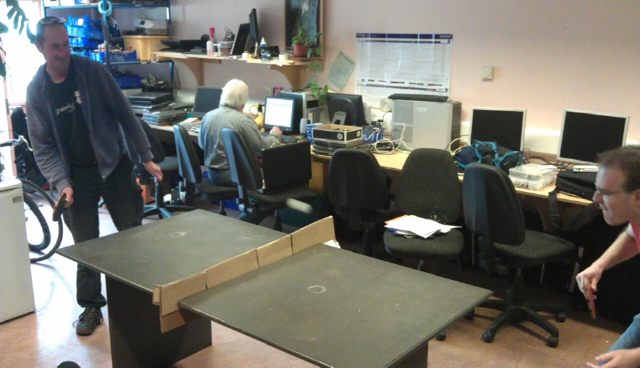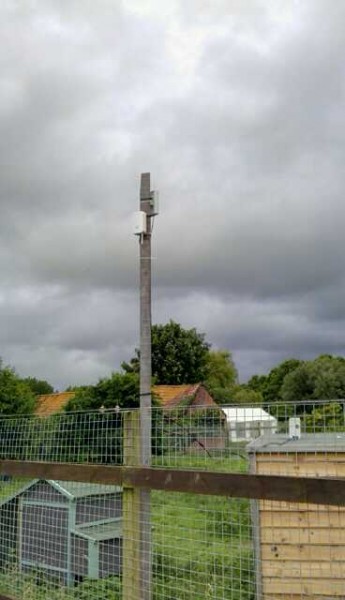 After the leap second problems reported earlier this week (news passim), Techworld features some more positive news – that Linux was central to the discovery of the Higgs boson by CERN.
After the leap second problems reported earlier this week (news passim), Techworld features some more positive news – that Linux was central to the discovery of the Higgs boson by CERN.
Techworld quotes a post by a Reddit user called d3pd, which we reproduce below.
I don’t see any CERN related things here, so I want to mention how Linux (specifically, Scientific Linux and Ubuntu) had a vital role in the discovery of the new boson at CERN. We use it every day in our analyses, together with hosts of open software, such as ROOT, and it plays a major role in the running of our networks of computers (in the grid etc.) used for the intensive work in our calculations.
Yesterday’s extremely important discovery has given us new information about how reality works at a very fundamental level and this is one physicist throwing Linux some love.
In the ensuing discussion, d3pd readily admits that, “In terms of data analysis, Windows could be used in principle”, but goes on to point out that Linux is ubiquitous in high performance computing environments (such as CERN. Ed.).
Linux is used because it is most appropriate for the job. Linux is ubiquitous in HPC and we use a lot of computing power in LHC physics, so the arguments for the use of Linux in HPC are very similar to the arguments for the use of Linux in LHC physics analyses. Naturally, it’s important to have an operating system that is free, open source and reliable (Scientific Linux is basically Red Hat Linux), but here’s a quotation from the Scientific Linux website that should give some idea of why Scientific Linux is needed:
“Our main goal for the base distribution is to have everything compatible with Enterprise, with only a few minor additions or changes. Examples of items that were added are Alpine, and OpenAFS.
Our secondary goal is to allow easy customization for a site, without disturbing the Scientific Linux base. The various labs are able to add their own modifications to their own site areas. By the magic of scripts, and the anaconda installer, each site is to be able to create their own distributions with minimal effort. Or, if a user wishes, they can simply install the base SL release.”
I work primarily in physics, not in computing, so I doubt that I am able to argue very competently for Linux over something such as BSD. The fact is that Linux was the operating system used in the overwhelming majority of the analyses contributing to the discovery, so, in that sense I think I am justified in claiming that Linux played a vital role in the discovery.

 SOCIS aims at offering student developers stipends to write code for various space-related open source software projects. Through SOCIS, accepted student applicants are paired with a mentor or mentors from participating projects, thus gaining exposure to real-world software development scenarios, whilst participating projects are able to identify and bring in new developers more easily.
SOCIS aims at offering student developers stipends to write code for various space-related open source software projects. Through SOCIS, accepted student applicants are paired with a mentor or mentors from participating projects, thus gaining exposure to real-world software development scenarios, whilst participating projects are able to identify and bring in new developers more easily. We’ve already blogged about registration opening for CiviCon London 2012 – the forthcoming conference for users and developers of
We’ve already blogged about registration opening for CiviCon London 2012 – the forthcoming conference for users and developers of 
 Unlike their colleagues in the city of Helsinki’s IT department, who think open source office suites cost too much (
Unlike their colleagues in the city of Helsinki’s IT department, who think open source office suites cost too much ( It’s just been announced by
It’s just been announced by 
 The
The 
 Our friends at
Our friends at 